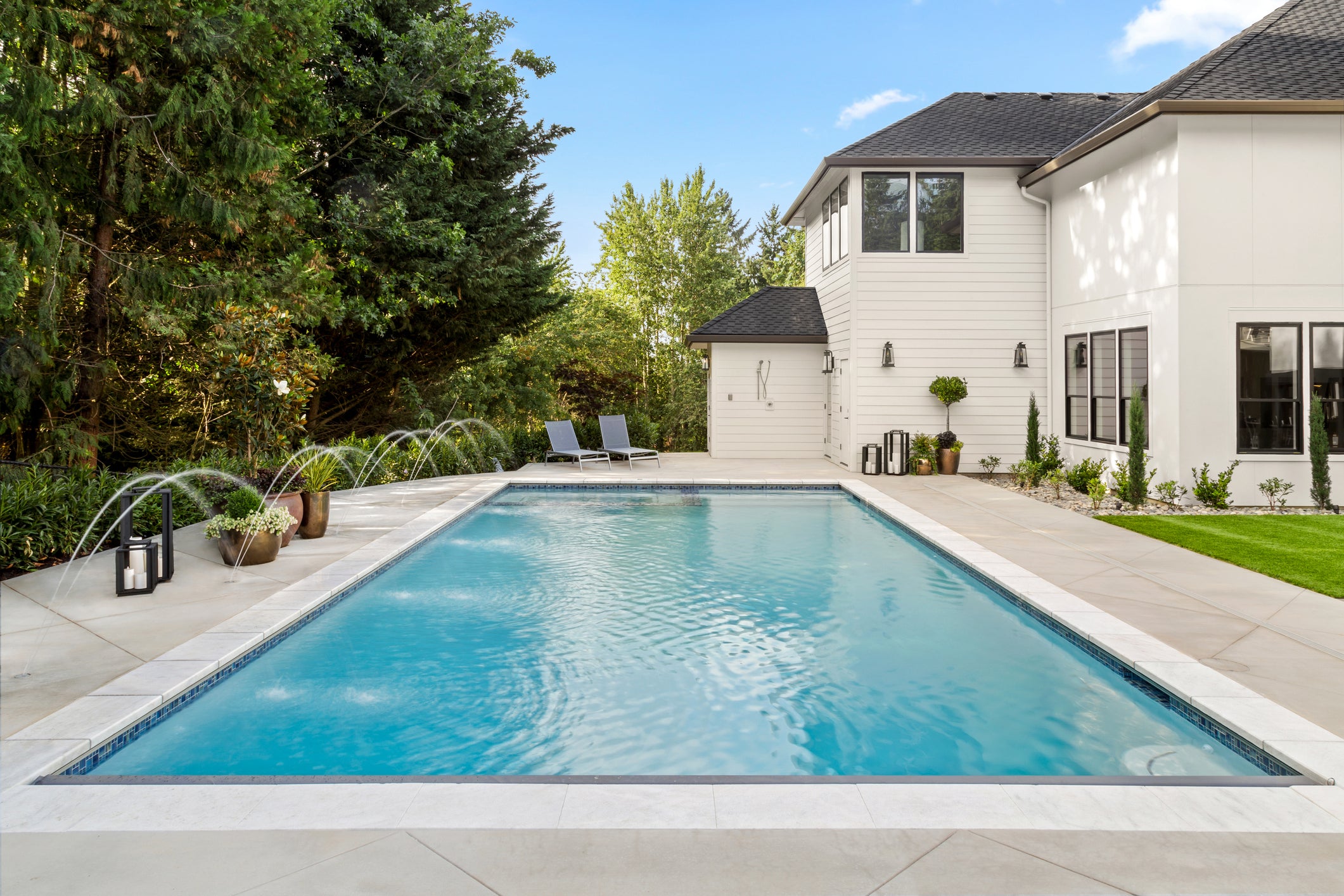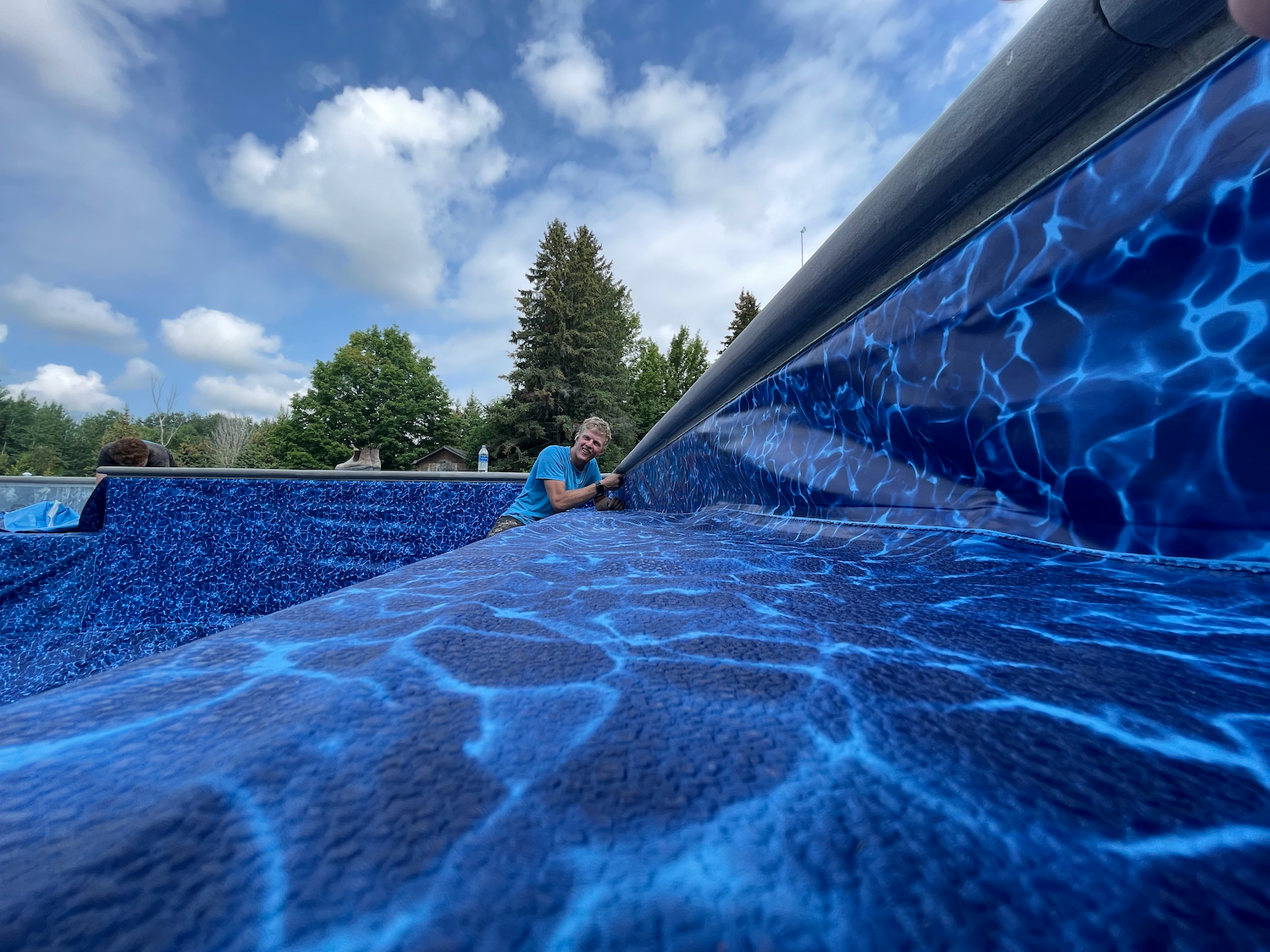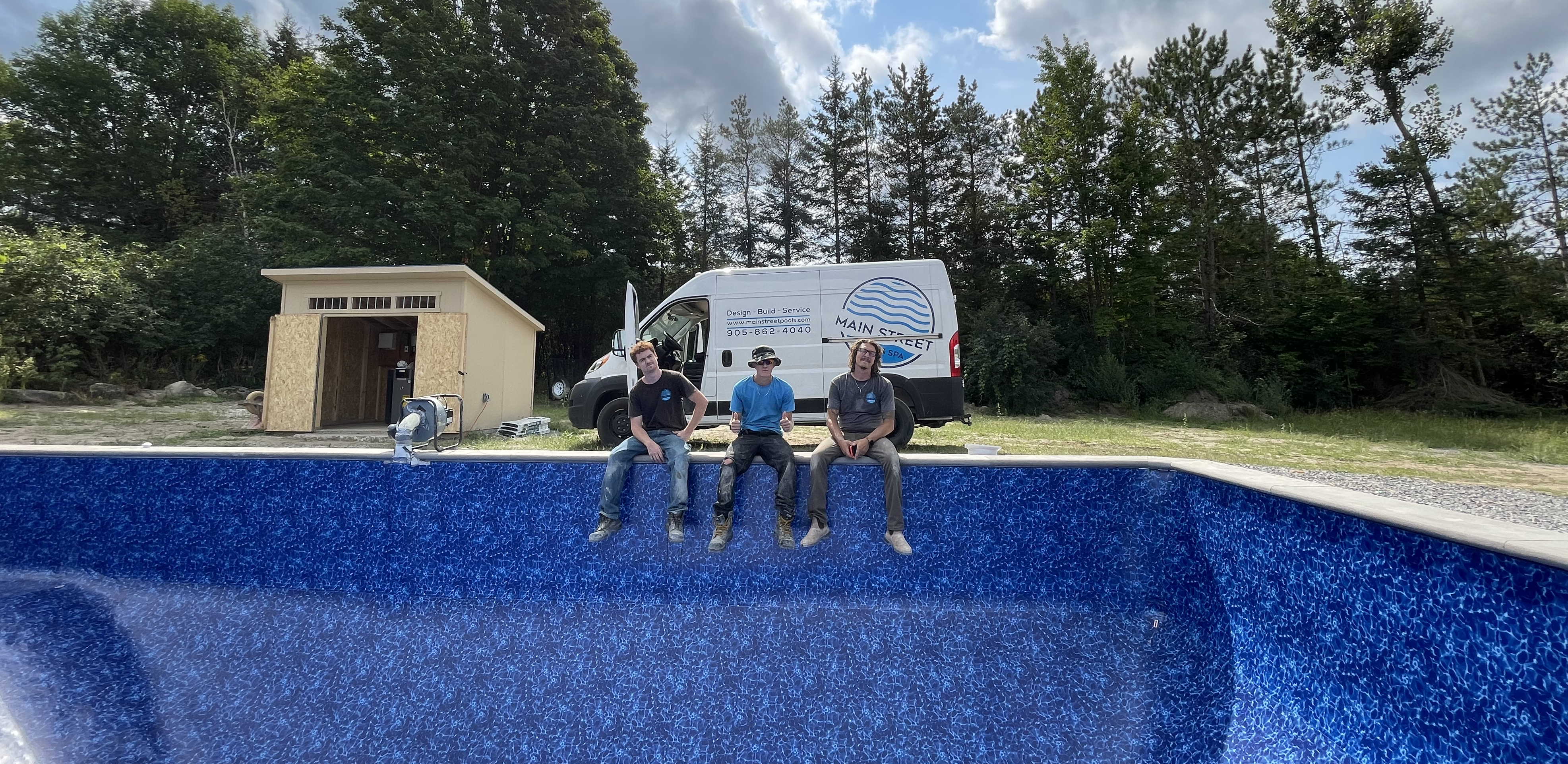When it comes to creating your dream backyard oasis, choosing the right material for your swimming pool is one of the most important decisions you'll have to make. With numerous options available such as concrete, fibreglass, and vinyl – each has its own set of advantages that need to be considered. We’ve created this helpful guide, exploring the key differences between these popular pool materials to help you make an informed decision based on your space and requirements.
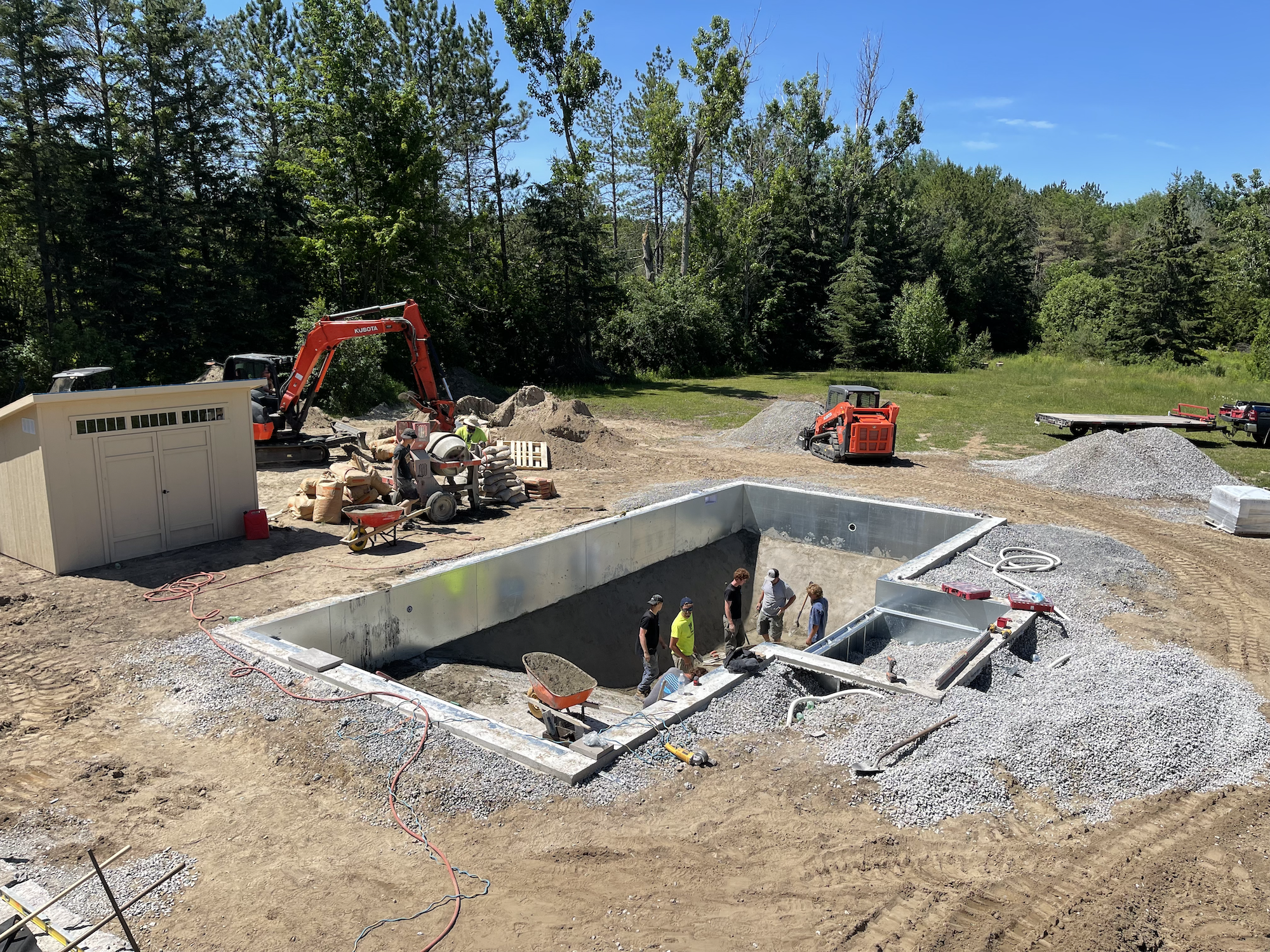
Concrete Pools
Concrete pools are the most customizable option available, offering endless design possibilities to suit any backyard aesthetic. These pools are constructed by spraying a mixture of concrete and sand onto a steel-reinforced frame, allowing for unique shapes, sizes, and features. From integrated spas and water features to intricate tile designs, the design possibilities with concrete pools are virtually limitless, allowing you to create a truly unique and personalized swimming experience.
One of the primary advantages of concrete pools is their durability and longevity. With proper maintenance and care, a well-constructed concrete pool can last for decades. This makes it a worthwhile investment for homeowners looking to add value and a permanent addition to their property.
However, concrete pools do come with some drawbacks to consider. They typically have longer installation times compared to fibreglass or vinyl pools, as the construction process is more labour-intensive. Additionally, the porous nature of concrete can make it more prone to algae growth and staining, requiring regular maintenance and chemical treatments to keep the pool clean and hygienic. Something else to keep in mind, concrete pools also tend to have a rougher surface texture that may be less comfortable for some swimmers.
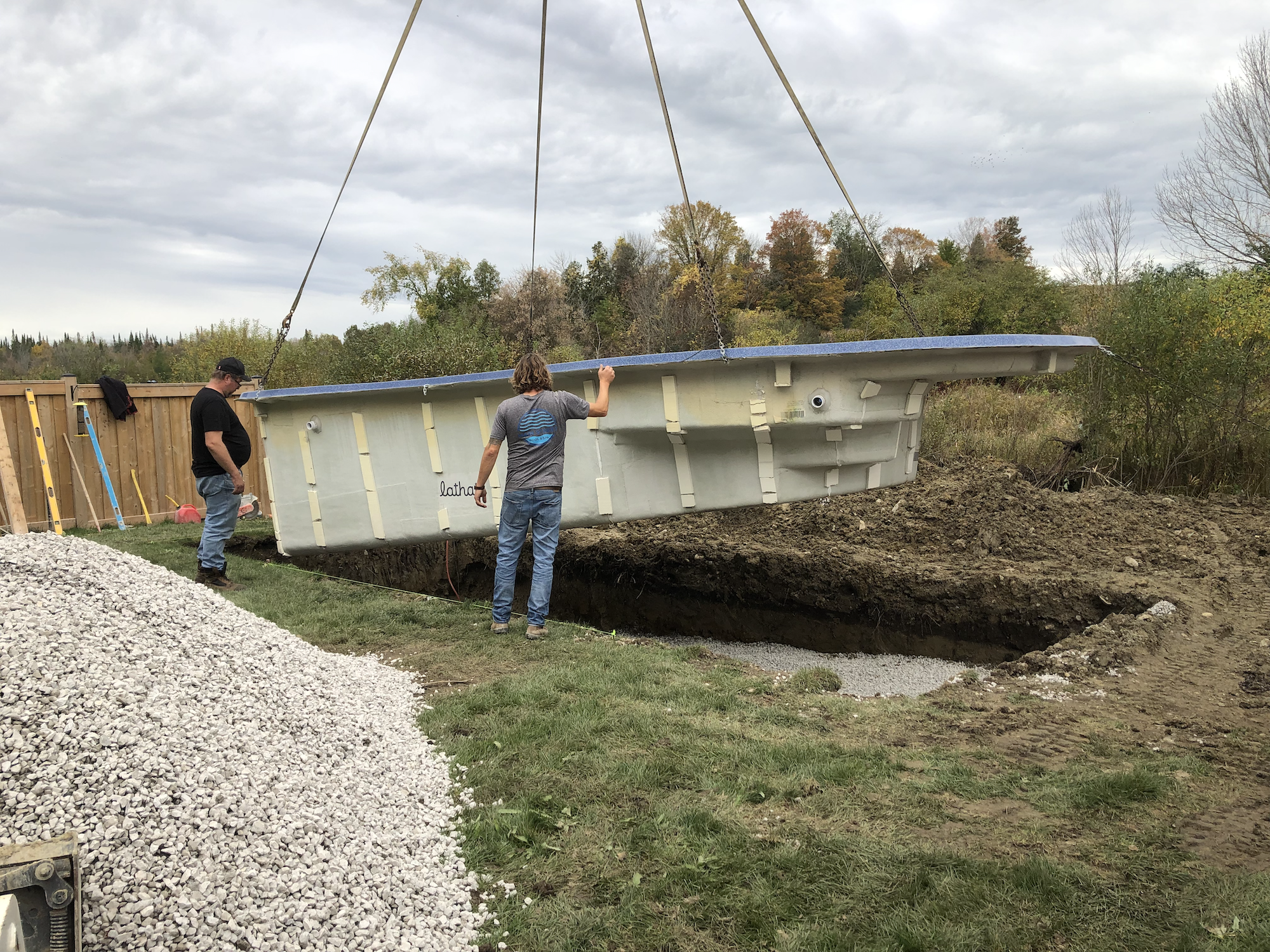
Fibreglass Pools
Fibreglass pools are rapidly gaining popularity among homeowners for several compelling reasons. Firstly, they offer quick installation times compared to other materials, as they are pre-manufactured in a factory and then transported to your property for installation. This means less disruption to your backyard and faster enjoyment of your pool.
Another significant advantage of fiberglass pools is their smooth, non-porous surface. Unlike concrete pools, fibreglass pools require minimal maintenance and fewer chemicals to keep clean. The smooth surface also makes it more difficult for algae and bacteria to adhere, reducing the need for scrubbing and cleaning.
Fibreglass pools are known for their durability. They are less prone to cracking and staining than concrete pools, and their flexibility allows them to withstand changes in soil conditions without significant damage.
There are also some drawbacks you should consider when thinking about purchasing a fibreglass pool. They typically come in a range of pre-designed shapes and sizes, so customization options may be more limited compared to concrete pools, for example. Transportation of the fibreglass shell to your property may require access for large equipment, which could be challenging in some locations and add some logistical costs.
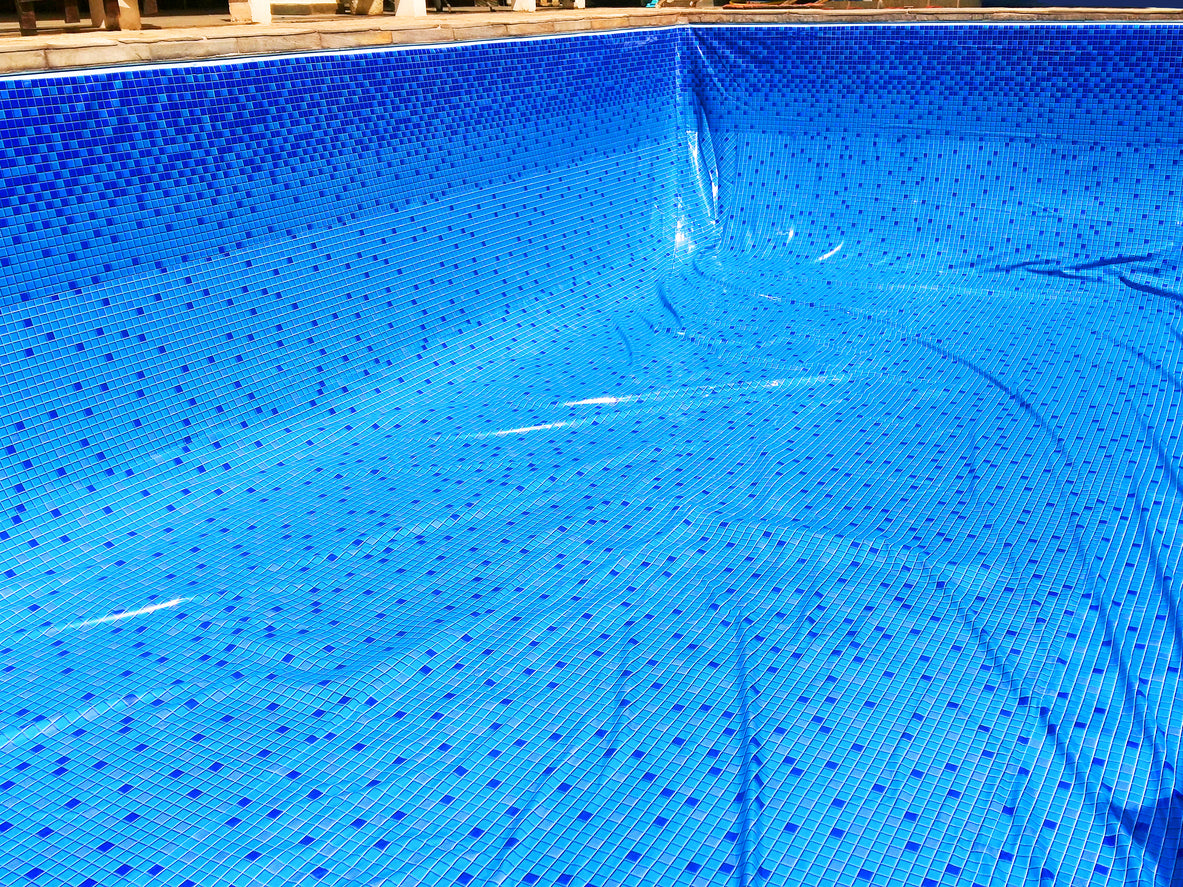
Vinyl Pools
Vinyl pools are another popular choice for homeowners seeking a customizable and budget-friendly option. These pools consist of a flexible vinyl liner installed over a steel or polymer frame, allowing for a wide variety of shapes and sizes.
One of the most significant advantages of vinyl pools is their cost-effectiveness. They are typically less expensive to install than fiberglass or concrete pools, making them an attractive option for homeowners on a tighter budget. The smooth surface of the vinyl liner is gentle on the skin and inhibits algae growth, reducing maintenance requirements.
Vinyl pools also offer excellent customization options, allowing you to create a unique design tailored to your preferences. Whether you prefer a traditional rectangular pool or a freeform shape with custom curves and features, vinyl pools can accommodate a wide range of design possibilities.
Something to be conscious of – the vinyl liner is susceptible to tears and punctures, which can occur from sharp objects or improper maintenance. Additionally, the lifespan of the vinyl liner is typically shorter than other pool materials and may require replacement every 7-10 years, adding to long-term maintenance costs.
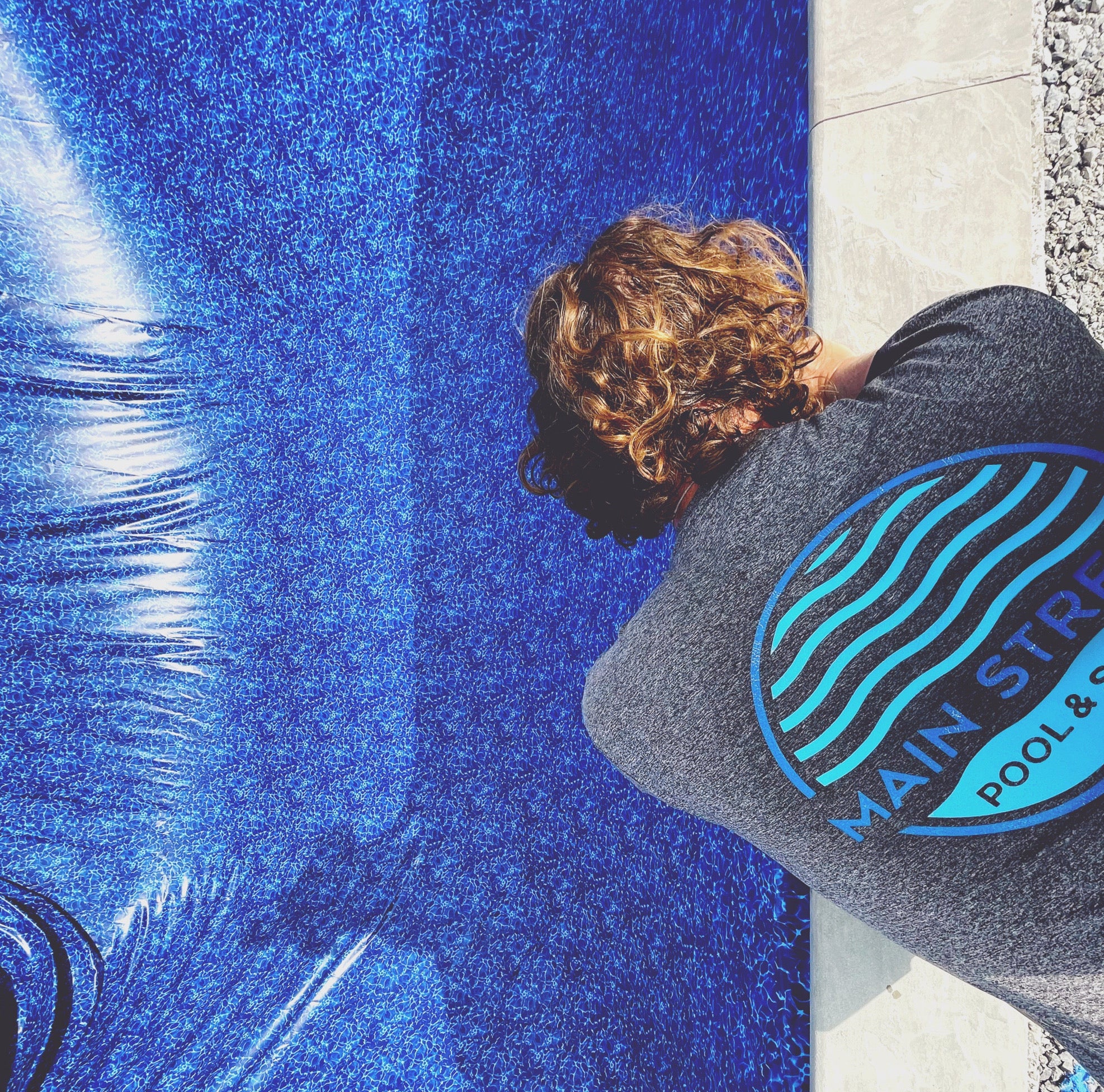
When it comes to choosing the right pool material for your backyard ultimately depends on your budget, preferences, and long-term goals - there isn't a one-size-fits-all solution. Concrete pools offer unmatched durability and design flexibility, albeit with a higher upfront cost and longer installation time. Fibreglass pools offer quick installation and low maintenance, while vinyl pools provide affordability and customization options.Whichever material you choose, investing in a quality pool from a reputable manufacturer and hiring experienced professionals for installation and maintenance will ensure years of enjoyment and relaxation in your backyard oasis. Take your time to weigh the pros and cons of each option, and consult with our pool experts to make the best decision for your unique needs.
READY TO START BUILDING YOUR DREAM POOL?
Fill out the form below and we will get started on helping you make your dreams a reality.

